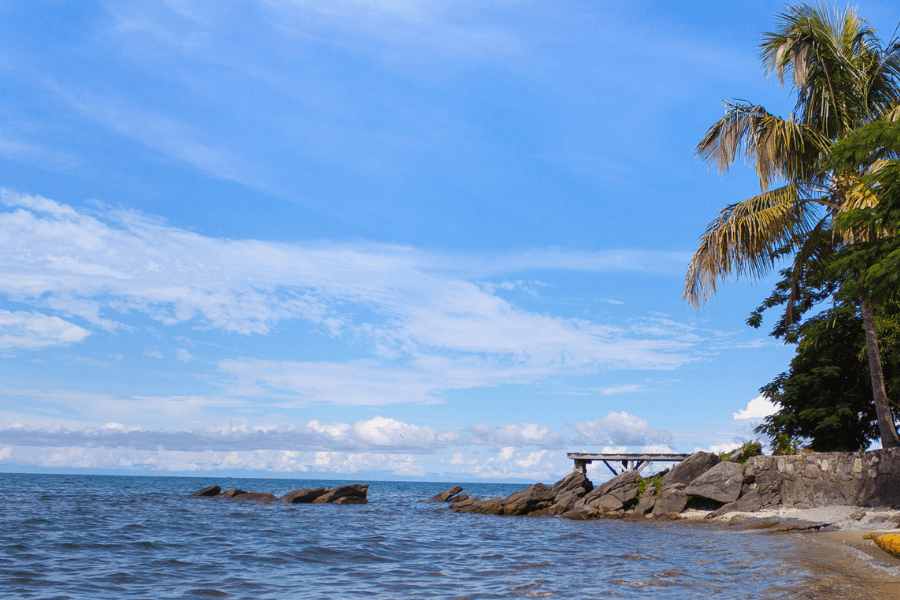
Currency of Malawi
Malawian Kwacha (MWK)

The Capital of Malawi
Lilongwe

Time Zone in Malawi
GMT+2
Important Facts
Important Facts About the Country of Malawi
Introduction to Malawi
Malawi, officially known as the Republic of Malawi, is a landlocked country located in southeastern Africa. The country is renowned for its diverse natural beauty and rich cultural heritage. With a population of around 19 million, the majority of people reside in rural areas and rely on agriculture as their primary source of income. Lilongwe, the largest city, serves as the capital. Malawi is often referred to as “The Warm Heart of Africa” due to the friendly and hospitable nature of its people.
What to Know about Malawi’s Geography
Malawi shares borders with Zambia to the west, Tanzania to the north and northeast and Mozambique to the east, south and west. The country covers approximately 118,000 square kilometers in total. Lake Malawi also referred to as Lake Nyasa, is a prominent feature of Malawi and occupies over one-fifth of its land area. The lake is home to numerous native fish species.
Climate in Malawi
Malawi experiences a hot climate in the lowlands of the south and a temperate climate in the northern highlands. The temperature is generally warm throughout the year. Equatorial rains and thunderstorms occur between November and April. From March onwards, the rainfall reduces significantly. Between May and September, damp mists from the highlands float into the plateaus, resulting in minimal rainfall during these months.
The Culture of Malawi
Dancing is an important element of Malawian culture, with traditional music and dances performed at initiation rites, rituals, wedding ceremonies and other festivities. The indigenous ethnic groups in Malawi have a rich history of basketry and mask carving. Many of these artifacts are still used in local celebrations. Wood carving and oil painting are also prominent in urban areas.
Religions Observed in Malawi
Malawi is predominantly a Christian nation, with a significant Muslim minority. Around 87% of the population follows Christianity and 11.6% practice Islam. The Roman Catholic Church is the largest Christian denomination in Malawi, with 19% of the population as adherents.
Languages Spoken in Malawi
English is the official language of Malawi. Chichewa, described as the country’s unofficial national language, is taught to all elementary school students. Over 40% of the population can speak Chichewa.
Tax and Social Security Information for Employers in Malawi
Personal Income Tax in Malawi
| Monthly Taxable Income (MWK) | Tax Rate (%) |
|---|---|
| First 150,000 | 0 |
| Next 350,000 | 25 |
| Next 2,050,000 | 30 |
| Excess of 2,550,000 | 35 |
Social Security in Malawi
Malawi operates a National Pension Scheme (NPS), which requires both the employer and employee to make contributions as follows:
- Employee: a minimum of 5% of monthly gross salary
- Employer: a minimum of 12% of monthly gross salary (includes 2% admin cost)
Employers must also pay TEVET (Technical, Entrepreneurial, and Vocational Education and Training) Payroll Levy at 1% of the employee’s basic pay.
*The above rates serve as a broad guideline. Actual rates charged will differ.
Important Information for Malawian Employees
Salary Payment
The payment of salaries should be in accordance with the terms stipulated in the employment contract. For employees whose wages are determined by the hour, day, week or based primarily on piecework or task-work, salaries must be paid at least once a week or every two weeks. However, for those whose salaries are fixed monthly or annually, the payment cycle should not exceed one month. In the case of a specified task contract, payment may be made upon completion.
Wages in Malawi must be paid:
- to the employee or a person designated in writing by the employee
- in the local currency
- via cheque in the sum of the wages payable with consent from the employee
Payslip
Employers in Malawi must provide an accurate itemized pay slip with the following information:
- The employee’s gross wages due at the end of the pay period
- The amount of every deduction and the purpose for each deduction
- The employee’s net wages payable at the end of the pay period
Annual Leave
The duration of annual leave depends on the employee’s working days in a week. Annual leave is awarded from the commencement of employment and is determined as follows:
- 18 working days if the employee works six days a week
- 15 working days if the employee works five days a week
Employees must take their annual leave within six months of becoming eligible unless both parties mutually agree to defer and accrue it.
If an employee’s employment is terminated, the employer must compensate them for any accrued but unused annual leave that they were entitled to but did not take before the termination date.
Sick Leave
Once an employee has completed 12 consecutive months of service, they are entitled to a minimum of four weeks’ sick leave at full pay and eight weeks at half pay each year. During the period of sick leave, the employee is entitled to receive their usual wages.
However, an employer is not obligated to offer sick leave unless the employee provides a medical certificate that describes their incapacity for work.
Maternity & Paternity Leave
Female employees are entitled to eight weeks of paid maternity leave once every three years. However, if the employee or her child is affected by a pregnancy-related illness, the employer must provide extended maternity leave for as long as deemed appropriate by the employer. A medical certificate must be provided. During maternity leave, the worker’s normal benefits and entitlements, including her contractual rights and accumulation of seniority, continue uninterrupted and her period of employment is not considered to have been interrupted, reduced or broken.
The maternity leave policy applies to all female employees in Malawi, including expats.
Public Holidays
Malawi generally observes 11 public holidays each year. Some holidays fall on fixed dates while others will depend on religious or seasonal events.
Benefits to the Employee in Malawi
Malawian Statutory Benefits
In Malawi, employees have legal entitlements to receive national pensions, annual leave, maternity leave and sick leave.
Other Benefits
In addition to the minimum entitlements, it is common for employers in Malawi to offer the following supplemental benefits:
- Year-end bonuses
- Private health and life insurance
- Allowances supporting housing, transportation, electricity, water, phone, education, domestic servants, etc.
- Prolonged or additional leave days
Rules Regarding Visas and Foreign Workers in Malawi
General Information
Visas
Visitors to Malawi are required to obtain a visa, except for those from the 33 visa-exempt countries or countries eligible for a visa on arrival. Visa-exempt countries can stay for up to 90 days for tourism and leisure purposes only, while visa-on-arrival countries can obtain a visa at any port of entry by paying a fee.
Alternatively, visitors can apply for an e-Visa online before traveling, which is available for around 220 nationalities and can be used for tourism, leisure, business or transit. The e-Visa is valid for 90 days from the date of issue and allows a single entry.
Malawi offers various types of visas based on the purpose of entry, such as tourist visas, official visas, transit visas, diplomatic visas, courtesy visas, work visas and study visas.
Work Permits
Foreign workers who intend to work in Malawi need to obtain a Temporary Employment Permit (TEP) regardless of their country of origin. However, whether they require a work visa or not depends on their nationality.
TEPs are granted to foreigners who have been offered employment by an organization in Malawi and are initially valid for at least six months and up to two years. The TEPs can be renewed twice by submitting the necessary documents and renewal application forms to the Regional Immigration Office at least three months before expiry. Foreign workers who do not have a TEP are prohibited from working in Malawi and it is considered a criminal offense to do so. Applicants for a new TEP must remain outside Malawi until their application has been approved.
Gratuity
According to the Employment Act, where an employee is not on pension due to exemptions extended to them, the employer shall arrange to pay to the employees, on retirement, termination of employment or death, a gratuity equal to 5% of the monthly salary of the employee for each completed month of service.
Public Holidays Recognized by Malawi in 2025
| Occasion | Date | |
| 1 | New Year’s Day | January 1 |
| 2 | John Chilembwe Day | January 15 |
| 3 | Martyrs’ Day | March 3 |
| 4 | Eid al-Fitr | March 30 |
| 5 | Eid al-Fitr Holiday | March 31 |
| 6 | Good Friday | April 18 |
| 7 | Easter Monday | April 21 |
| 8 | Labor Day | May 1 |
| 9 | President Kamuzu Banda’s Birthday | May 14 |
| 10 | Independence Day | July 6 |
| 11 | Independence Day Holiday | July 7 |
| 12 | Mother’s Day | October 15 |
| 13 | Christmas Day | December 25 |
| 14 | Boxing Day | December 26 |
Note: The dates in this table are an estimate. We will update this page once the official public holiday dates for 2025 are released
HR
Malawian Human Resources at a Glance
Employment Law Protections in Malawi
- Constitution of Malawi
- Occupational Safety, Health and Welfare Act
- Workers’ Compensation Act
- Pension Act
- Labor Relations Act
Employment Contracts in Malawi
An employment contract may be concluded in one of the following forms:
- For an unspecified period of time
- For a specified period of time
- For a specific task
Employers are required to provide written confirmation of employment terms to their employees within one month of their start date. This written statement must include the following information:
- The names of both parties
- The date of commencement of the employment contract
- The rate of remuneration and the method of calculating it
- The nature of the work to be performed
- The normal working hours
- Termination provisions
- Any disciplinary rules applicable to the employee
Fixed Term Contracts for Malawian Employees
A fixed-term contract may be for a set amount of time or the completion of a specific work. Unless the contract has been implicitly or explicitly renewed or extended, contracts for a certain amount of time expire automatically on the date set for termination. There is no requirement for a termination notice. A contract to complete a specific work expires upon the task’s completion. No termination notice is necessary from either party.
The law does not set requirements on the maximum duration and allowable renewals of fixed-term contracts. It is up to the agreement between both parties.
When a contract for a set time frame or a specific task is used to fill a position tied to routine and permanent activity, it is judged to be an employment contract for an indefinite duration.
Pre-Employment Checks
Employers are permitted to conduct pre-hire checks as long as they are not discriminatory in nature. There are no restrictions on such checks, provided they are carried out fairly and do not discriminate against any particular group of individuals.
Regulations and Rules Regarding Working Hours in Malawi
In Malawi, the maximum weekly working hours are 48 hours. This excludes overtime. The maximum daily working hours depend on the employee’s work schedule:
- No more than five days per week: 12 hours
- Six days per week: Eight hours
Employers are not permitted to require employees to work for more than six consecutive days without providing a 24-hour rest period. This rest period must be taken on a customary day or a day agreed upon mutually by the employer and the employee.
Malawian Laws Regarding Overtime
The minimum overtime pay rates in Malawi are as follows:
- Ordinary overtime for time worked on a working day in excess of the hours normally worked: 150% of the hourly salary
- Day off overtime for time worked on a day on which an employee would otherwise be off duty: 200% of the hourly salary
- Holiday overtime for time worked on a public holiday: 200% of the hourly salary
Malawian Timesheets & Record Keeping
Employers in Malawi must maintain an accurate written record of the following information:
- Salaries and remuneration paid to each employee for the past three years
- The gross amount payable to each employee, any deductions made and the reasons for the deductions.
Termination
Fixed-term contracts and task-based contracts terminate automatically upon the completion of the specific task or the expiry of the term, respectively. Meanwhile, an indefinite-term contract can be terminated by either party, provided a written notice is served.
Under the law, an employer may only dismiss an employee on valid grounds, such as conduct, capacity or retrenchment. In the case of retrenchment, employers must follow a prescribed procedure that includes the following steps:
- Consult with employee representatives
- Notify the Secretary responsible for labor in writing
- Prepare a report within 14 days of retrenchment.
Retrenched employees should be given priority for rehiring when suitable job opportunities arise in the company.
Employers must pay any salary or other payments due to the employee within seven days of termination. Employees can request a certificate of termination from the employer, which should include the reason for termination but should not contain any evaluation of the employee’s work unless requested by the employee.
Lastly, it is considered an offense for an employer to terminate an employee’s employment due to pregnancy. The burden of proof falls on the employer to show that the termination was not pregnancy-related.
Malawi’s Requirements Regarding Notice Periods
In Malawi, the minimum notice period for terminating fixed-term contracts is 14 calendar days. However, for indefinite contracts, the minimum notice period varies depending on the employee’s remuneration cycle and length of tenure.
| Remuneration Cycle | Notice Period |
|---|---|
| Monthly | One month’s notice |
| Biweekly | Two weeks’ notice if employed less than five years; One month’s notice if employed at least five years; |
| Weekly | One week’s notice if employed less than two years; Two weeks’ notice if employed at least two years but less than five years; One month’s notice if employed at least five years; |
| Daily or Hourly | One day’s notice if employed less than six months; One week’s notice if employed at least six months but less than two years; Two weeks’ notice if employed at least two years but less than five years; One month’s notice if employed at least five years; |
Under Malawian employment law, employers have the option to make a payment to an employee instead of providing notice of termination. This payment is called “payment in lieu of notice” and it includes the employee’s wages and any additional benefits they would have received if they had worked through the notice period. In other words, the employee is compensated for the time they would have worked if notice had been given.
Redundancy/Severance Pay in Malawi
When an employment contract is terminated due to redundancy, retrenchment, economic difficulties, technical needs, structural changes, operational requirements or unfair dismissal of the employee, the employee is entitled to receive severance pay. The amount of severance pay is determined based on the employee’s length of service with the employer:
- Less than one year: No severance pay
- One to five years: Two weeks’ salaries for each completed year of service
- Six to 10 years: Three weeks’ salaries for each completed year of service
- More than 11 years: Four weeks’ salaries for each completed year of service
Under the Employment Act, if an employee is exempt from receiving a pension, their employer must provide them with a gratuity upon retirement, termination of work, or death. This gratuity must be equal to 5% of the employee’s monthly income for each completed month of service.
Post-Termination Restraints/Restrictive Covenants
Malawian law allows non-competition clauses to be included in the employment contract but such restrictions must be reasonable in nature and scope to be legally enforced.
Data Protection
At present, there is no specific law in Malawi that deals with data protection. However, the Electronic Transactions and Cyber Security Act 33 of 2016 contains provisions that are relevant to data protection and can be applied in this context.





